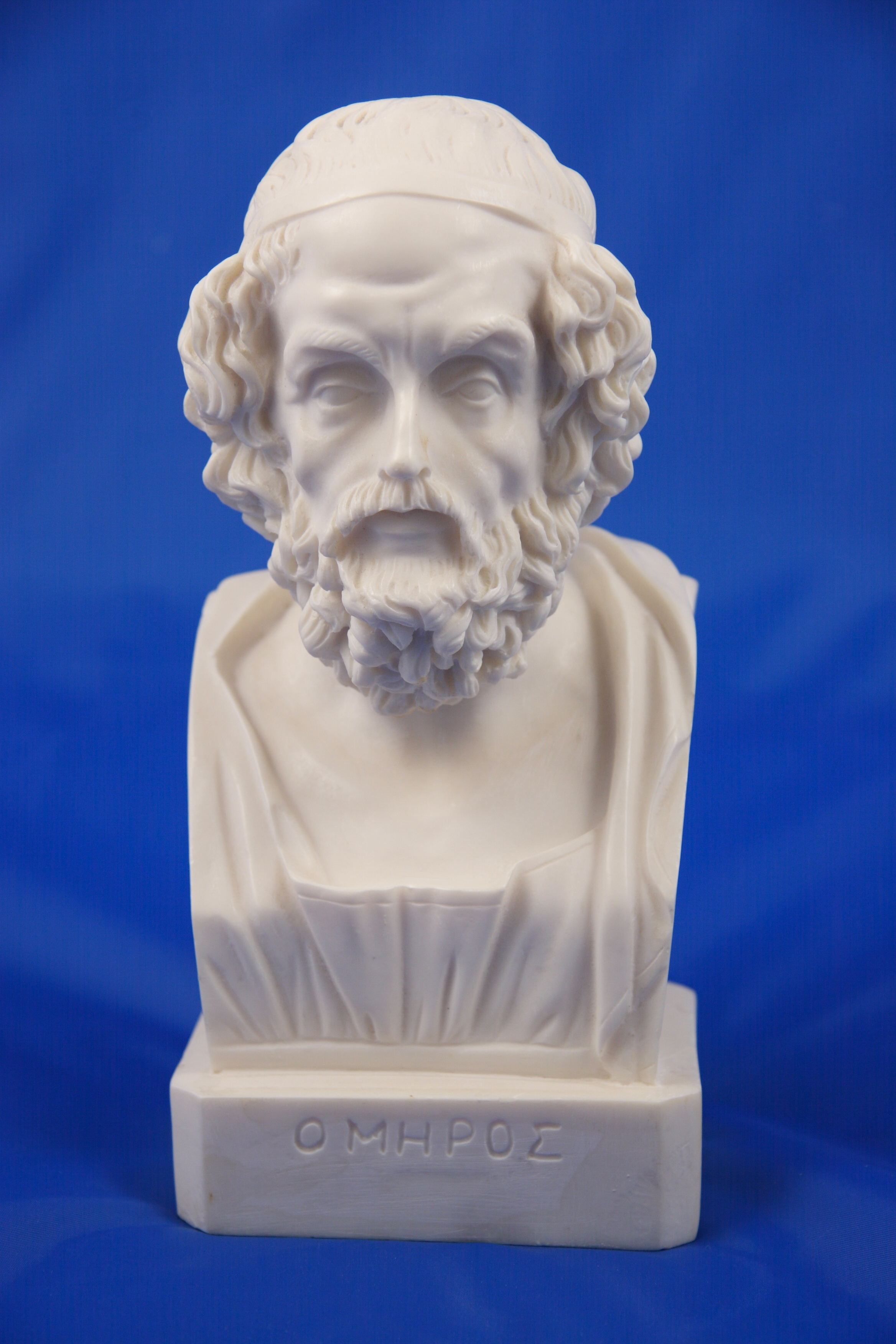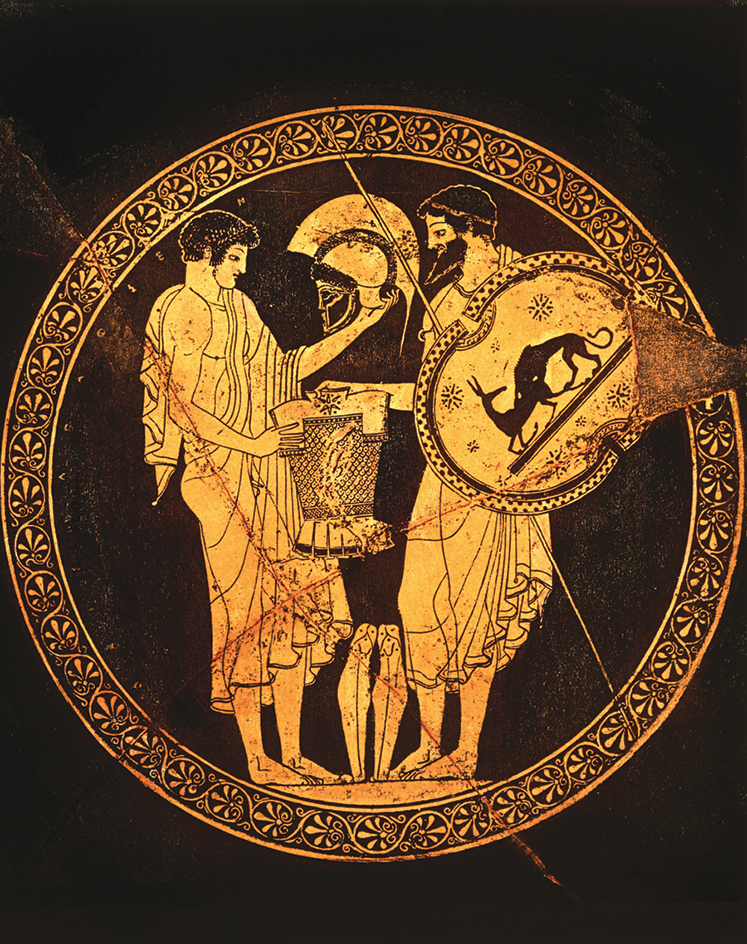Homer is traditionally considered the ancient Greek poet who composed the great epics the Iliad and the Odyssey. Scholars know almost nothing about Homer. Some believe that he may have lived in a Greek-speaking city on the eastern shore of the Aegean Sea or on the island of Khios. Other scholars deny that he ever existed. According to tradition, Homer was blind.
Homer’s poems.
The events in the Iliad and the Odyssey occur during and after the Trojan War. The legend of the war may be based on an actual war fought between Greece and the city of Troy in about 1200 B.C. Many scholars believe the poems were composed between 800 and 700 B.C. because the poems refer to social conditions at that time.

Archaeologists have discovered evidence in the ruins of Troy and ancient Greece that confirms the historical basis for some things described in the poems. But the poems’ characters and events–even if partly based on real people and historical incidents–were altered over the centuries in the retelling of folk tales and in the poems of singing poets called bards. The bards created a series of poems that told the entire story of the Trojan War. The Iliad and the Odyssey are the only ones that survive, probably because of their long and sophisticated form.
After Homer’s time, the two poems were recited as part of great religious festivals in Greece. Copies of the poems became the basic textbooks that Greek children used to learn to read and to study the legends and myths of ancient Greece. As a result, the Greeks formed their religious views from Homer’s portrayals of the gods and goddesses. His poems also furnished characters and plots for the great tragic dramatists of the 400’s B.C.–Aeschylus, Euripides, and Sophocles.
Early scholarship.
The Greek people came to know Homer’s poems by hearing them recited or by reading handwritten copies of them. In making copies, writers sometimes made mistakes or deliberate changes in the text. By 300 B.C., many slightly different versions of the Iliad and the Odyssey existed in Greece.
From about 300 B.C. to about 100 B.C., scholars at the great Alexandrian Library in Egypt tried to correct the changes in the two poems and restore them to their original form. A few of the scholars came to believe that the poems were the work of two different poets. These scholars, called separatists, thought that the language, point of view, and subject matter of the two poems differed so greatly that they could not have been created by one person.
Analysts and unitarians.
For many centuries, the question of who composed the Iliad and the Odyssey was almost forgotten. Then, in 1795, German scholar Friedrich August Wolf revived the issue. He said archaeologists had no evidence that the Greeks knew how to write when Homer was supposed to have lived. Wolf argued that such long poems as the Iliad and the Odyssey could not have been composed without the knowledge of writing. He led a school of critics called analysts, who developed a theory that Homer never existed. They believed the Iliad and the Odyssey were collections of short songs by several poets. The analysts insisted that inconsistencies in the stories and variations in language showed many authors were involved.
A second group of scholars, called unitarians, opposed the analysts. The unitarians insisted that the Iliad and the Odyssey were the work of one poetic genius or, at most, of two great poets. The unitarians stressed the unified overall plan of the poems and the consistent character portrayals. The dispute between the analysts and unitarians became known as the Homeric question.
The Homeric question today
has been greatly influenced by our increased knowledge of how oral poetry is created. During the 1930’s, an American scholar named Milman Parry began studying the bards of Yugoslavia. These bards were illiterate (unable to read or write), but they composed long poems orally. They did not memorize their poems, but re-created them in slightly different form at each recitation. In creating their plots, the Yugoslav bards used and reused many traditional phrases, lines, and scenes. Parry pointed out that the Iliad and the Odyssey share these characteristics, though on a much larger scale. 
Parry’s studies have been developed by other scholars into a theory that Homer was an illiterate bard of exceptional ability. According to this theory, Homer sang the stories of the Iliad and the Odyssey on many occasions. Toward the end of his life, writing was introduced into Greece. Homer then dictated the Iliad and the Odyssey. The poems were written in a form of Greek that does not belong to any one city or historical period. This fact has complicated scholars’ attempts to trace Homer’s life.
Most scholars today agree that the Iliad and the Odyssey reflect an oral tradition. But they still disagree over details of how the poems were composed or preserved.
